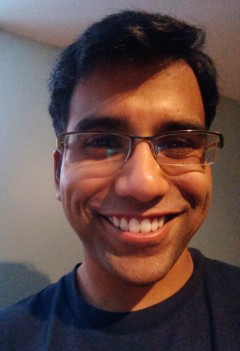Bachelor of Humanities and Biology
Class of 2015
 |
I chose to enter the Humanities and Biology stream at Carleton because, while I’ve always been sure I wanted to be a doctor, I’ve also always loved politics, philosophy and history. Initially this caused problems because I assumed during high school that I’d have to pick one or the other. Finding this program, which is unique in Canada, was an incredibly welcome surprise.
It’s difficult for me to describe how rewarding I’ve found this program. During high school I had resigned myself to the idea that much of my time in university would be spent attending classes that I wasn’t interested in, in order to get a degree I wouldn’t care about. The Humanities and Biology program, with its study of biology, biochemistry and all the traditional Liberal Arts has provided me with something I never thought I’d have during my undergraduate years: a genuine desire to attend every single one of my classes, every day.
The training I received in the sciences was rigorous and thorough. The majority of courses in the science stream are identical to those taken by students earning a B.Sc. This means that I feel comfortable in labs doing research, and my science professors are often pleasantly surprised to learn that I am a student in the Bachelor of Humanities. Meanwhile, my Liberal Arts courses perfectly complement what I have learned in the biology stream, giving me a much more complete view of what it means to be human than I would have thought possible. Studying the history of ideas constantly reminds me that human beings are much more than the enzymes and chemical reactions that keep them ticking, while also filling me with wonder that those reactions, taken as a whole, could power the brilliant minds I was learning about.
On a practical note, I have found that the Humanities and Biology degree was perfect as preparation for medical school. The breadth of courses ensured that I was ready for the MCAT, the medical school admissions exam. In particular, the Verbal Reasoning section was essentially a continuation of what I’d been doing in my Humanities classes for years. This section tends to be the most difficult one for test-takers, and it’s worth noting that the new MCAT Verbal Reasoning section will focus exclusively on the humanities and social sciences. Finally, during my admissions interviews I was able to articulate myself coherently on a variety of social and ethical issues because the Humanities and Biology program has had me constantly thinking about those issues from a variety of perspectives. If you’re a prospective medical student looking for a preparatory degree I can’t recommend this program enough.
Even if you’re not considering medicine, you can’t go wrong taking this degree – none of the other Bio-Hums students in my year intend to study medicine, and none of them regret their decision to stay in this program, which is actually the best endorsement any of us can give: no matter what your goals are, you won’t regret taking the Humanities and Biology degree.
Deepro’s Scientific Research
For my thesis project I worked in Dr. Owen Rowland’s lab, where we investigated ways of genetically modifying plants to make them more resistant to infections and drought by producing a compound called suberin. The goal is to eventually apply the techniques we used to food crops in order to meet the threat of climate change to the world’s food supply.
In 2012 I won an undergraduate student research award (USRA) and conducted paid research on the kinds of criteria female guppies use to choose mates. The goal was to learn more about the role of mate choice in the evolution of behaviour and personality in animals.